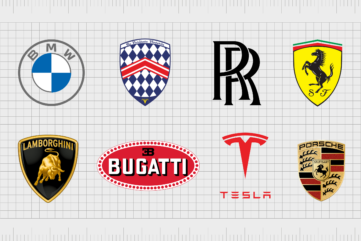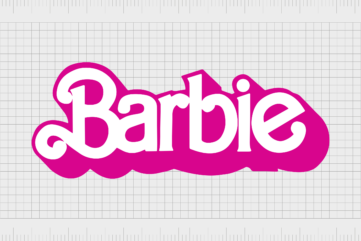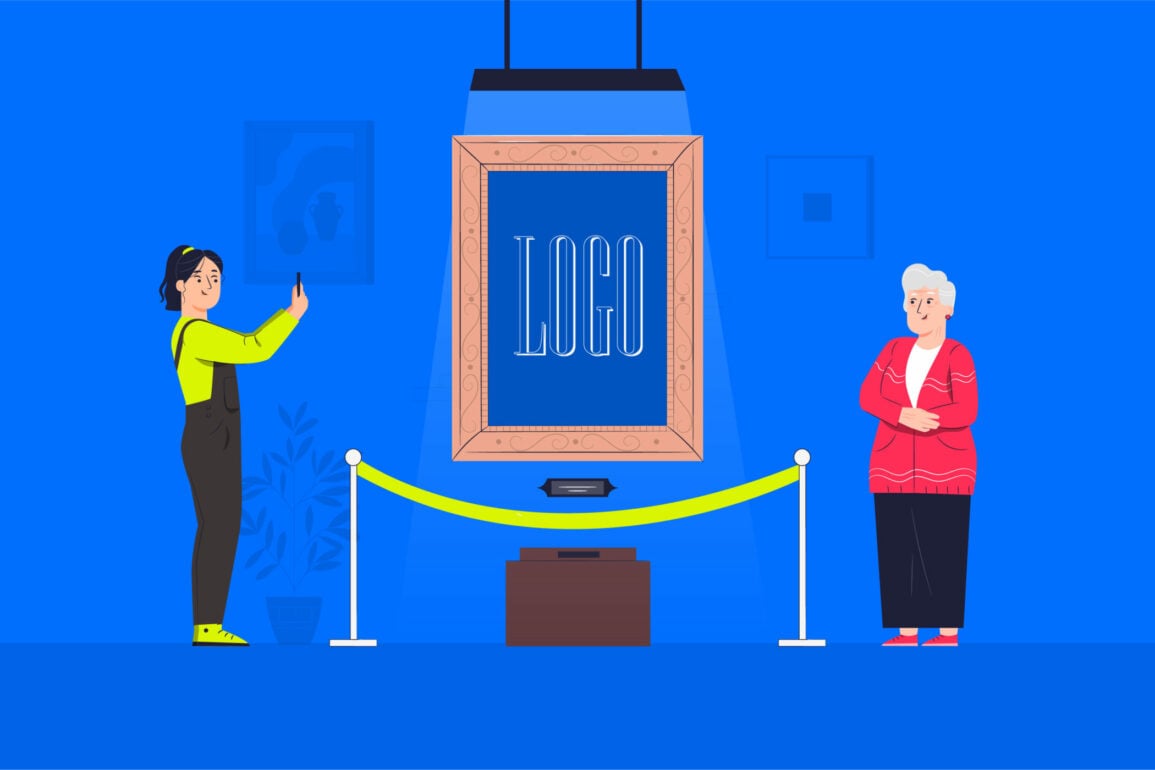Does your logo have to match your business name?

Does your logo have to match your business name?
That is a common question many trademark offices and brand designers hear from budding companies. Both names and logos are crucial parts of a brand’s identity. Ensuring they match can be an excellent way to generate familiarity with your target audience and boost brand awareness.
However, just because your logo can match your business name doesn’t mean it has to. Plenty of companies out there leverage a “wordmark” for their logo. This involves stylizing your brand name in an emotionally engaging and visually appealing way.
For example, Disney, Instagram, Google, and countless other well-known brands all use their names in their logos. However, the name of your trademark and the title you show in your logo can be different.
IBM is actually an “International Business Machines Corporation” from a legal perspective. However, they don’t use this full name in their brand emblem.
There are even companies out there that don’t display their logo in their name at all. Look at Nike – they completely removed their name from their logo over the years to focus on just the swoosh.
Let’s explore everything you need to know about matching your name to your logo.
Does your logo have to match your business name?
The simple answer to the question: “Does your logo have to match your business name?” is no.
Your logo and name are two separate parts of the branding equation, although they generally do have some overlap. Your logo should represent your brand identity, including your name, personality, values, and mission. However, it can be different from your name.
When you trademark or copyright a business name, you’ll need to provide the full title of your business. This can include your company’s status (LTD, LLC, etc.) and various other details. However, trademarking a name doesn’t mean you must use it in all your branding assets.
There are various ways to create a logo beyond simply choosing a “wordmark” which conveys your exact title. Some companies choose icons representative not of their name but of the underlying essence and personality of the brand. Look at the Toyota logo, for instance.
Other companies use an image or graphic to reference their name without spelling it out for their customers.
We can clearly associate Apple’s logo image with the word “Apple” without needing the company’s name included. Target’s red and white circular logo conveys the company’s name through association and nothing else.
Indeed, many organizations with a strong brand presence dispose of their wordmarks entirely in a world of increasingly simplified and minimalistic logos.
Companies like Starbucks, Shell, and Mastercard don’t need to include their name in their logo because their image is already highly recognizable.
Do you have to put LLC in your logo?
Companies that choose to match their name to their logo also don’t necessarily need to ensure the match is exact. We already mentioned IBM as an example.
Companies with long and confusing names can switch to an acronym or a shortened version of their title when creating a logo. This can make the emblem more eye-catching and easier to remember.
Long-text logos can be particularly problematic in today’s digital world, where companies must ensure their emblem is straightforward and easy to see on any device.
Companies also have the option to remove certain legal information from their logo. For instance, you might see a logo with a copyright or trademark component alongside the image. However, it’s unlikely to see a brand adding terms like “LLC” to their logo too.
Terms like “LLC” and “LTD” added to your brand image generally won’t have any direct benefits in capturing audience attention and engagement. In some cases, adding these elements to your logo can even make your business look less professional.
National brands like Target, Starbucks, and Honda don’t include extra details in their logos. They focus on making their images as straightforward and simple as possible. Typically, logos are an extension of a company’s “trade name” rather than its actual legal name.
This means marketing and branding departments aren’t required to include any legal jargon.
Does a logo have to include the business name?
Companies have many options to choose from when creating the perfect logo. While some will opt for a “wordmark” highlighting their name, others prefer to use specific icons, graphics, or mascots. Some also use logos that only show a portion of their name.
Simply put, your logo can include all of your name, a portion of it, or nothing. There are pros and cons to matching a business logo to a name which every company should consider when deciding on its brand mark.
A wordmark can be a fantastic way to boost familiarity and brand recognition by giving your customers an easier way to remember what your business is called.
Wordmarks are particularly useful for younger, budding companies who must establish themselves in their target market. It’s much easier for a customer to become familiar with a name and share that title with their friends and colleagues than it is for them to form a connection to just an image.
Wordmark logos that include a business name are:
Easy to remember
The more a customer sees your name, the more likely they will remember your brand. They’re also more likely to remember a name if it’s enhanced with a visual element, such as additional graphics of stylized fonts.
Good for growth
Most companies that don’t use their name in their logo already have an established brand presence in their industry. If you’re developing a new business from scratch, making the right impression with an image alone can be difficult.
Flexibility
Wordmarks are relatively timeless. As long as you choose the right typography and style for your wordmark, it can evolve quickly with your business without requiring many tweaks and revisions.
Simplicity
Using your name as your logo means you don’t have to think about what kind of graphic will send the right message to your audience. You can even add graphical elements later to a “combination mark” if you like.
However, wordmark logos can also be problematic if you have a particularly long business name, and they’re sometimes seen as being relatively dull and less creative.
There can also be some issues with a wordmark logo if you eventually decide to change your name, shorten it, or use a different variation someday.
Can your logo be different from your business name?
So, does your logo have to match your business name? In simple terms: no.
Your logo and name can be completely separate components of your brand identity if you believe that’s the best strategy for your brand. You can use an image to convey your business name’s essence or an icon that highlights your personality without using your name at all.
You are free to use only a portion of your name or an acronym in your logo if you think it needs to be shorter to create an effective brand mark. While you’re free to use your name in your logo – and many companies do – you’re also free to eliminate your name from your logo entirely.
Your brand is entirely under your control. How you choose to enhance your image with a combination of the right name and logo is up to you.
Fabrik: A naming agency for our times.

We’ve made our name famous by naming other businesses.
Get in touch if you have a company, product, or service that requires a unique name. Click below, and let’s start a conversation today!



















